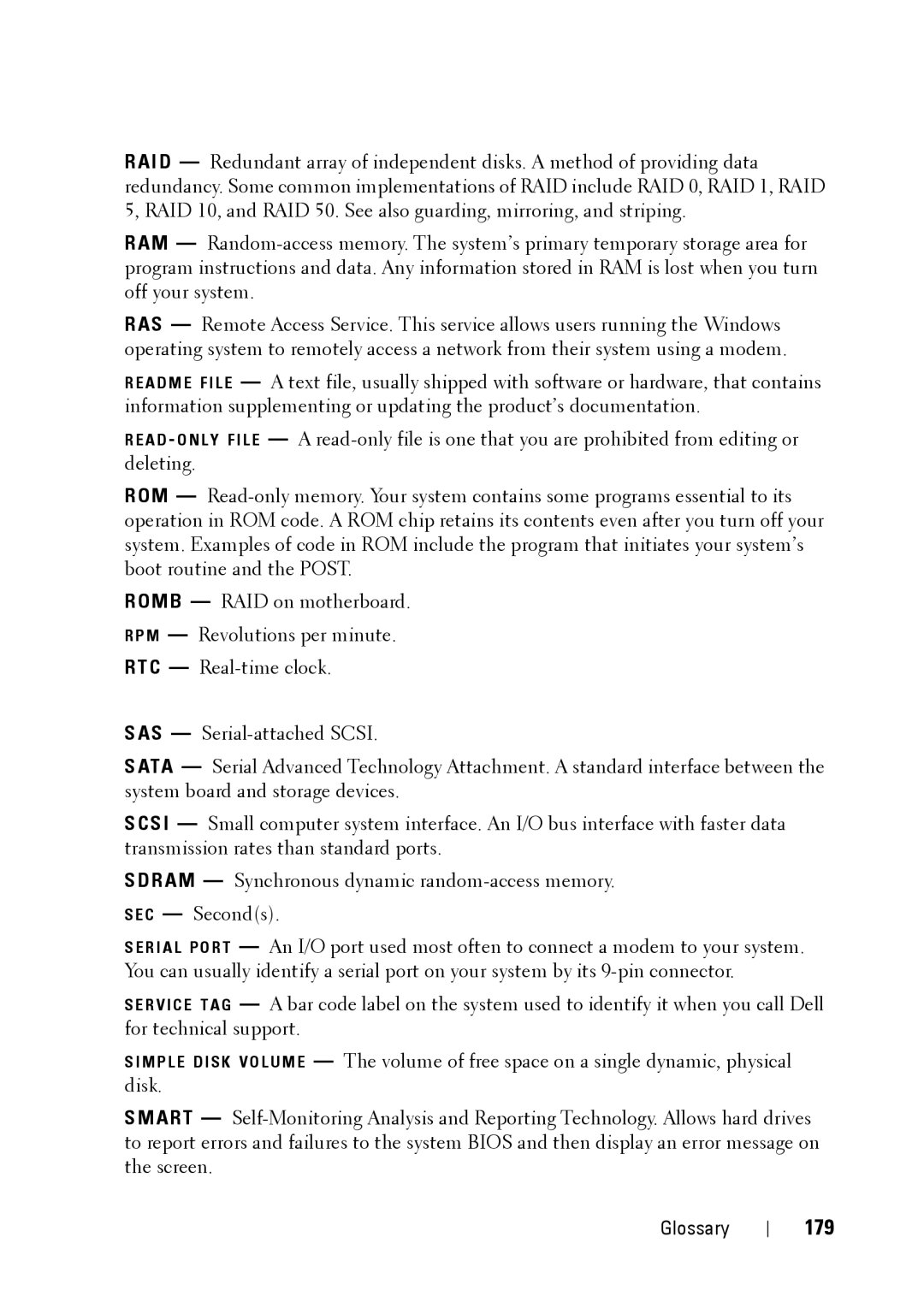R A I D — Redundant array of independent disks. A method of providing data redundancy. Some common implementations of RAID include RAID 0, RAID 1, RAID 5, RAID 10, and RAID 50. See also guarding, mirroring, and striping.
R A M —
R A S — Remote Access Service. This service allows users running the Windows operating system to remotely access a network from their system using a modem.
R E A D M E F I L E — A text file, usually shipped with software or hardware, that contains information supplementing or updating the product’s documentation.
R E A D - O N L Y F I L E — A
ROM —
ROMB — RAID on motherboard. R P M — Revolutions per minute. RTC —
SAS —
SATA — Serial Advanced Technology Attachment. A standard interface between the system board and storage devices.
SCSI — Small computer system interface. An I/O bus interface with faster data transmission rates than standard ports.
SDRAM — Synchronous dynamic
S E R I A L P O R T — An I/O port used most often to connect a modem to your system. You can usually identify a serial port on your system by its
S E R V I C E T A G — A bar code label on the system used to identify it when you call Dell for technical support.
S I M P L E D I S K V O L U M E — The volume of free space on a single dynamic, physical disk.
SMART —
Glossary
